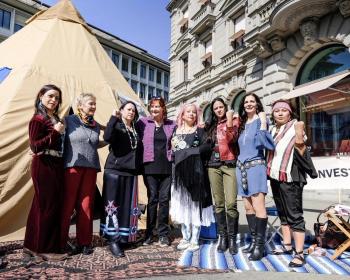
|
|
Entre febrero y mayo de 2019, Cultural Survival ha otorgado pequeñas subvenciones para apoyar a comunidades Indígenas a que inicien, continúen o finalicen los trámites para la consecución de una concesión para usar una frecuencia radioeléctrica en la banda FM o AM en México.
By María Recinos y Diana Pastor, reposted from EntreMundos
Cambridge, Massachusetts
This may be a telecommute position
Cultural Survival es una organización Indígena sin fines de lucro que apoya iniciativas de radios comunitarias Indígenas en diferentes partes del mundo con subvenciones que puedan fortalecer las capacidades de éstas importantes plataformas de comunicación y que sirvan como medios de información, opinión, educación, cultura e idiomas de los Pueblos Indígenas desde sus propias filosofías, historia, derechos y anhelos.
Objetivos de la convocatoria